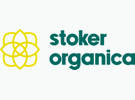"Demand for organic top fruit exceeds demand," is how René Laan, Stoker Organica's Managing Director sums up the market in late September. This Dutch company sorts, packages, and markets organic fruit. He is especially optimistic about the apple market. "The apple season got off to a rough start. There was immediate demand, which has remained for the past few weeks: picking, sorting, packing, and going directly to customers. The fruit doesn't even see a cold store."
 René Laan van Stoker Organica
René Laan van Stoker Organica
Stoker Organica is holding back slightly on marketing pears. "This year's harvest's disappointing, so we want to achieve a genuinely high price," begins René, pointing to the unusual combination of a strong molt and storms that caused fruit to fall from the trees. High temperatures led to that happening just before picking, too. So, the harvest could well be half of last year's. "Then pricing is critical."
Minimal trade
René notes that while programs run per usual, there is little pear trade. That partly stems from exports - which do not pick up until local stocks are depleted - and because pears are being offered at what René considers fair market prices given the circumstances. The same goes for the Belgian top fruit harvest, which he says is usually sold slightly earlier than the Dutch. "In short: trade still has another flow. Once that dries up, it's normally the Netherlands' turn in organic pears," he says.
Despite wanting good pear price formations, René acknowledges that there is a ceiling. "Those cannot rise indefinitely, and you can't ask double simply because you have half of last year's stock. Then people won't be able to afford them and you won't sell anything." For pricing, Stoker Organica takes the growers' per kilogram price as the starting point.
Never too much
Though pear prices are higher, that does not slow sales, says Laan: "I've read that organic sales are sometimes difficult due to inflation, but my sales figures say otherwise." He indicates that things like exports are vital to that. "In the Netherlands, far more apples than pears are eaten. The Dutch climate is, however, good for growing Conference pears, and there's much demand for it in our neighboring countries. We've never had too much. On the contrary, I have to really look for organic Conference pears. Demand is far higher than supply," he explains.
Despite that, it seems the Netherlands' organic top fruit acreage is not rapidly expanding. René blames that partly on the three-year conversion period. That requires a substantial investment from growers, which sometimes proves difficult to achieve. "Growers have the cost per kilogram of organic, but the yield isn't always that of organic. Also, in-conversion fruit often doesn't enter the market until the organic fruit runs out."

"There's demand for organic, not in-conversion fruit, but that fruit is, at least, more organic than conventional or any other label. It's seen as the best alternative at that point, but generally earns less," René explains. He is, thus, in favor of using the €50 million financial boost the government has set aside to support the organic sector for things like partially removing that barrier.
Good answer
Because René deems it vital that the organic sector grows. "Organic cultivation offers an excellent answer to all the current critical issues. It’s a well-known, proven concept laid down in European law." Here, the trader distinguishes between organic and new labels, such as PlanetProof or Regenerative, that are appearing on the market. "All these are, are more of the same. There are often parties behind those who very deliberately don't choose organic and try to present an alternative. Fortunately, governments are increasingly seeing the value of organic," he continues.
"There’s a crucial difference: an organic mark of approval has embedded checks that ensure you, as a consumer, can trust that the offered product is, in fact, organic. It's the best you can buy. It's pricier, but that is what it genuinely costs; anything less is too cheap. That price is made up afterward in the form of repairs."
Economically viable
Yet, much communication with consumers is still lacking, Laan observes. That is where he sees another use for public funds. He thinks explaining organic could benefit sales. "There are plenty of prejudices about organic, which has always had a certain image. All we do is grow high-quality - but still nice-looking - fruit using different control methods that are far less harmful to the environment.” Regardless, organic farms are regular business ventures. "I'm all for a better climate, and I'm happy to be a major part of that solution, with organic. But it must be economically viable," René concludes.
René Laan
 Stoker Organica BV
Stoker Organica BV
Noorderbaan 22
8256 PR Biddinghuizen
0321 331044
info@stokerorganica.nl
www.stokerorganica.nl
"fruit" - Google News
November 20, 2023 at 08:15PM
https://ift.tt/l1oOkAT
Organic top fruit: demand exceeds supply - FreshPlaza.com
"fruit" - Google News
https://ift.tt/fcl8nEX
https://ift.tt/GyFRxga
Bagikan Berita Ini














0 Response to "Organic top fruit: demand exceeds supply - FreshPlaza.com"
Post a Comment